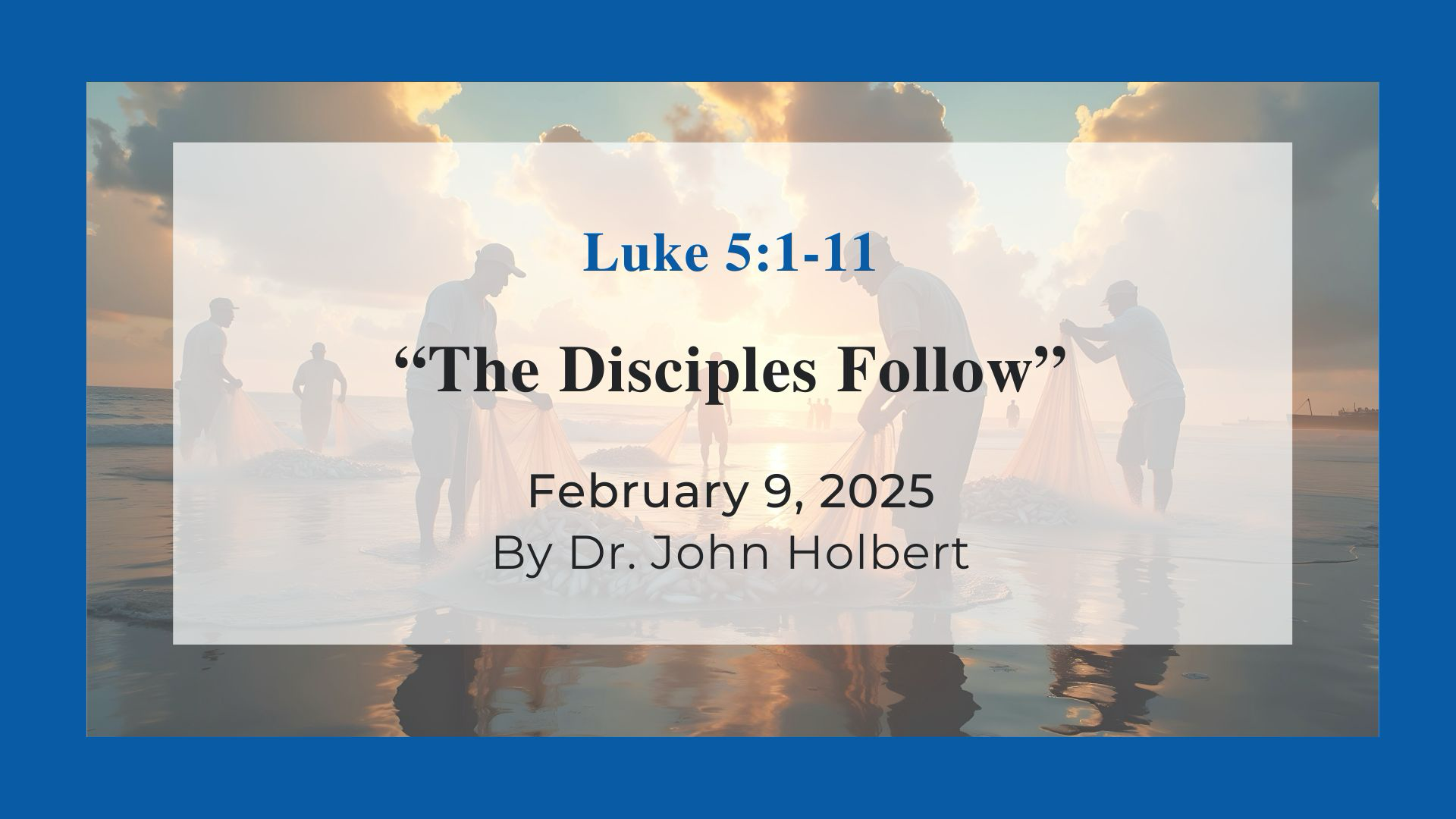The Disciples Follow - Reflections on Luke 5:1-11, Epiphany 5, Year C
by John C. Holbert on Sunday, December 29, 2024

It is often very helpful to compare the various Synoptic treatments of a story from the life and ministry of Jesus to recognize the unique emphases that each writer provides the careful reader. It is quite clear that Luke is in the main following the order of Mark, as is Matthew, but each author has particular interests that appear in their own telling. Luke 5:1-11 gives us the tale of Jesus calling his disciples, but Luke has a very particular way of doing so, a way that comports with his special concerns in both Luke and Acts, the second volume of his work. Let us first briefly remind ourselves how Mark and Matthew relate this particular story.
Mark 1:16-20 narrates the story with his usual compression of detail. Jesus merely walks by the sea of Galilee, notices Simon and Andrew fishing, and calls them to join him and become “fishers of people.” A bit further on, he sees James and John, issues the same invitation, and “immediately” all leave and follow. No reason is given for their complete rejection of their former lives; the apparent call of Jesus is reason enough. Matthew recounts the story much as Mark does. Luke is quite different. Jesus here is "standing by the lake (not “sea”) Gennesaret,” with a large crowd “pressing on him to hear the word of God” (Luke 5:1). In an attempt to find a place to teach them that word, he sees two boats on the shore, and the men whose boats they are found nearby cleaning their fishing nets. Jesus steps into one of the boats, the one that belongs to Simon, and asks him to push the boat into the water. Jesus then sits in the boat to teach, the usual way that a teacher taught in the 1st century. He surely speaks “the word of God,” but we are given no content of that word here.
He then turns back to Simon and tells him to “lower his nets for a catch” (Luke 5:4). Simon immediately replies, “Master (Greek epistates, a word meaning “standing over” literally, indicating authority), we have worked all night long and have caught nothing. Yet, if you say so, I will lower the nets” (Luke 5:5 NRSV). The haul of fish threatens to burst those nets! This is reminiscent of the huge fish haul post-resurrection in the Gospel of John 21:11, and the result for Luke is similar. After Simon signals the other boat to help them—they all are apparent partners in the fishing trade—the two boats are just able not to sink under the vast catch (Luke 5:8). But now comes Simon’s reaction to what has just occurred.
He “falls at Jesus’s knees” (a common Lukan phrase; see 22:41; Acts 7:60 among others), and cries out “Depart from me, Lord (kyrios), I am a sinner!” (Luke 5:8) Simon uses the characteristic theological kyrios here when addressing Jesus, which may be equivalent to "master” in vs.5, but surely has deeper theological power. Simon here acts just like Isaiah at his calling, when he sees God and immediately confesses that he is “a man of filthy lips, living among people of filthy lips,” because he has seen God (Is. 6). So, we may conclude, has Simon seen kyrios, the Lord. Luke now makes his point: “He said this because amazement had overwhelmed him and all of his companions at the catch of fish they made, as it did also James and John, sons of Zebedee, who were Simon’s partners” (Luke 5:9-10). This enormous catch of fish has brought “amazement,” (thambos) religious awe before things holy (Acts 3:10). Luke regularly accentuates the fascination of Jesus, rather than the terror or dread elicited by him in Mark’s gospel.
The holy awe generated by the huge fish catch causes Jesus to cry to Simon, “Fear no more! From now on you will be one who snares people” (5:10). Luke avoids the famous Markan and Matthean pun, “fishers of men (people)”, but retains the connection to the fishing context by his use of the verb zogreo “a capturing alive,” people now instead of fish. Now it is after all that dialogue and action that “they left everything and followed him” (5:11). The reason that they act like this is obviously the enormous haul of fish on a night when nothing at all was caught before Jesus’ arrival at the lake. Their following is no random, nor immediate act. Jesus is Lord and has demonstrated that reality, and Simon will certainly be one who snares people, as is made plain in Acts 2 when he preaches at Pentecost and 3000 souls are saved. Simon, like Isaiah before him, has witnessed the power of God and has been called to be a prophet of that God, through the power of Jesus, a fact he will show again and again in the book of Acts. Luke’s careful telling of the call of the disciples has greatly aided his particular understanding of the work of Jesus and the promised work of his disciples. Is it not wonderful that a detailed reading of these ancient documents can yield so much of what the writers hoped to say to their first hearers and hence to us!
